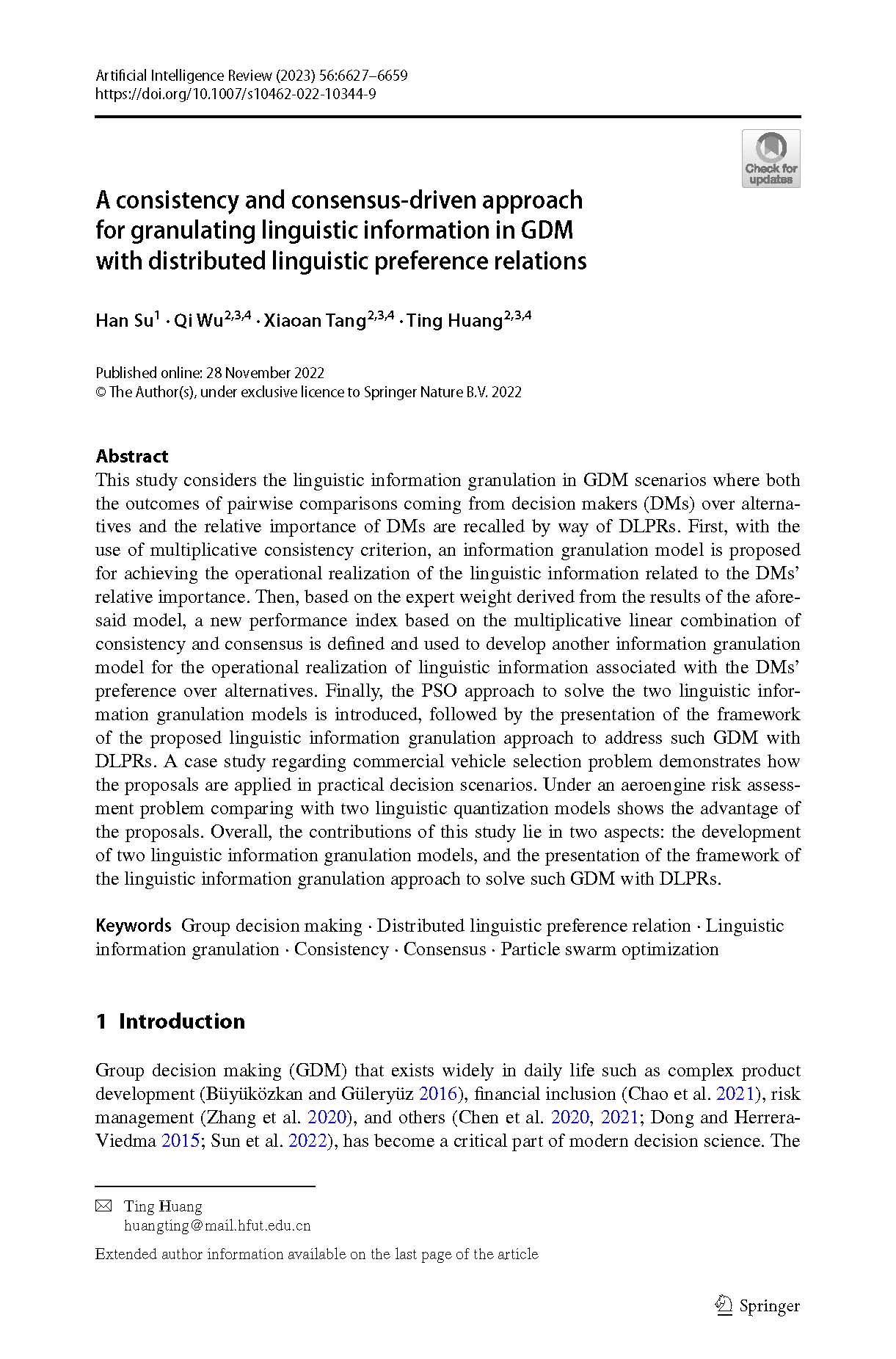A consistency and consensus-driven approach for granulating linguistic information in GDM with distributed linguistic preference relations
Article Ecrit par: Tang, Xiaoan ; Wu, Qi ; Huang, Ting ; Su, Han ;
Résumé: This study considers the linguistic information granulation in GDM scenarios where both the outcomes of pairwise comparisons coming from decision makers (DMs) over alternatives and the relative importance of DMs are recalled by way of DLPRs. First, with the use of multiplicative consistency criterion, an information granulation model is proposed for achieving the operational realization of the linguistic information related to the DMs’ relative importance. Then, based on the expert weight derived from the results of the aforesaid model, a new performance index based on the multiplicative linear combination of consistency and consensus is defined and used to develop another information granulation model for the operational realization of linguistic information associated with the DMs’ preference over alternatives. Finally, the PSO approach to solve the two linguistic information granulation models is introduced, followed by the presentation of the framework of the proposed linguistic information granulation approach to address such GDM with DLPRs. A case study regarding commercial vehicle selection problem demonstrates how the proposals are applied in practical decision scenarios. Under an aeroengine risk assessment problem comparing with two linguistic quantization models shows the advantage of the proposals. Overall, the contributions of this study lie in two aspects: the development of two linguistic information granulation models, and the presentation of the framework of the linguistic information granulation approach to solve such GDM with DLPRs.
Langue:
Anglais
Thème
Informatique
Mots clés:
Consensus
particle swarm optimization (pso)
Group decision making
Consistency
Distributed linguistic preference relation
Linguistic information granulation

